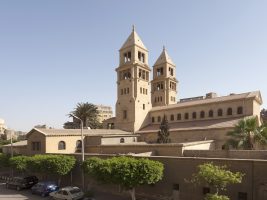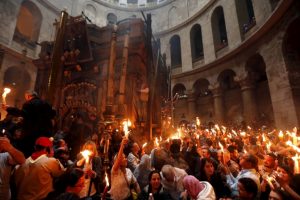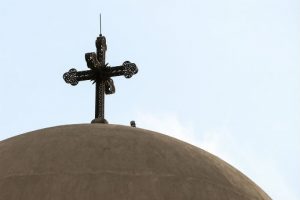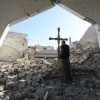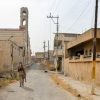In Egypt’s Minya province, which has the highest percentage of Christians in the country, even the mention of the word “church” can be dangerous, as churches are believed to be religiously “unclean” by some local Muslims, according to a report.
“They burned my house. They burned the house my brother was building and the houses of five other brothers. They thought we were going to open a church,” NPR quotes Ebrahim Fahmy, a resident of Kom al-Lufi village, where the houses were attacked and set on fire in April when they had gathered to pray for the families of victims of the Palm Sunday attacks that had killed 44 people.
“Christians should go somewhere else to pray because the village has a lot more Muslims than Christians,” the mother of an underage Muslim student who allegedly attacked a group of Christian students was quoted as saying. She claimed that the Quran says churches are “haram,” or religiously unclean.
Father Daud, a member of the clergy, confirmed that he a has applied for a permit twice since 2006 to build a church in Kom al-Lufi, but the approval is still pending.
He said that Christians and Muslims generally have no tension in Minya but only as long as you don’t mention the word “church.”
Christian groups have called for a special legislation for churches in Egypt.
“The torching of Coptic homes in Kom al-Lufi underscores once more the urgent need for Egypt’s House of Representatives to enact a law regulating the construction and renovation of houses of worship in a manner that guarantees the right of Christians to worship in community with others,” said Christian Solidarity Worldwide’s senior press officer Kiri Kankhwende at the time.
In May, 29 people were killed in an attack in Minya. Children, including a 2-year-old girl, were among the victims.
The Christians were traveling in two buses and a small truck when masked gunmen stopped the vehicles on a road leading to a monastery. Each person was asked to deny their faith in Jesus Christ, and when they all refused, they were shot dead, according to reports.
The Islamic State terror group, also known as IS, ISIS, ISIL or Daesh, claimed responsibility for the attacks. IS also signaled while claiming responsibility that more attacks were coming: “The Crusaders and their tails from the apostates must be aware that the bill between us and them is very large and they will be paying it like a river of blood from their sons, if God willing.”
World leaders condemned the massacre, with U.S. President Donald Trump calling the incident a “merciless slaughter” that “tears at our hearts and grieves our souls.”
Egyptian President Abdel-Fattah El-Sissi had declared a three-month state of emergency following the attack on two churches north of Cairo on Palm Sunday. However, the Coptic church released a statement after the Palm Sunday bombings, saying, “While we appreciate the fast response by officials in dealing with the event, we hope that necessary procedures are undertaken to avoid such attacks, which damage Egypt’s image and cause Egyptians a great deal of pain.”
Sinai Province, the name of the local affiliate of IS in Egypt, is seeking to impose a hardline interpretation of Islam in the country.
IS has slaughtered more than 100 Christians in Egypt since December in a series of separate attacks.
However, Coptic Christians have said that they “take pride” in dying for their faith. “We take pride to die while holding on to our faith,” Bishop Makarios, the top Coptic Orthodox cleric in Minya, said in May.
Coptic Christians make up about 10 percent of Egypt’s population of 92 million.













